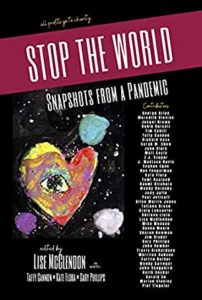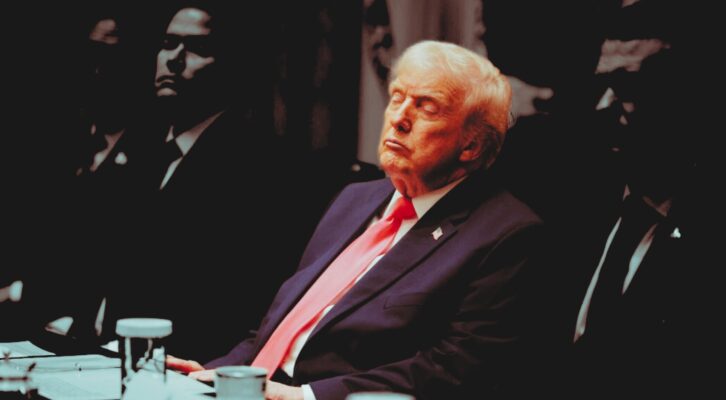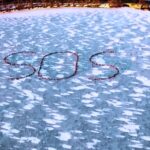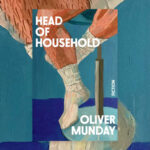The brainchild of mystery writer Lise McClendon, the anthology, STOP THE WORLD: Snapshots from a Pandemic, sprang from the depths of lockdown, with help from co-editors Gary Phillips, Kate Flora, and Taffy Cannon, on a bleak spring day in this infamous year. Over 40 writers from ten countries contributed short fiction, personal essays, and poetry to help us understand the struggles, isolation, sacrifice, and heartache of this strange time in our lives.
Four contributors spoke with editor Lise McClendon (who also wrote an essay) about their pieces. Dan Fesperman is a former foreign correspondent for the Baltimore Sun and the award-winning author of 11 novels. Sarah M. Chen has published many short stories and recently co-edited the anthology, The Swamp Killers. Matt Coyle is the award-winning author of the Rick Cahill series and hosts the Crime Corner podcast on Authors on the Air. German mystery writer Tatjana Kruse has published three mystery series and won the Chandler Society’s Marlowe Award for best German short story.
Look for the book this month. All profits will go to charity.
Lise McClendon: First, how is everyone doing, health- and writing-wise? These days it seems appropriate to “take everyone’s temperature.” No fevers, I hope.
Tatjana Kruse: I’m fine. I think. It’s a challenging time for a world class hypochondriac like me. Wasn’t it Thomas Jefferson who said: Idleness begets ennui, ennui the hypochondria? Whenever someone sneezes—even outside in the street—I can almost see tiny viruses sailing through the air towards me. I even wear my mask when I go to the letterbox to get my mail.
Sarah M. Chen: So far, so good! It was tough initially to write fiction during all of this. I’ve slowly been getting back in the groove though and it feels good.
Matt Coyle: Feeling well. Thanks.
Dan Fesperman: My wife and I have remained healthy, as far as we know, since neither of us has been tested. Our daughter who lives in Brooklyn got Covid in March, with mild but odd symptoms, such as losing her sense of smell for ten days. She still has some weird smell reactions from time to time, and for us that has highlighted one of the scarier aspects of this disease—that, even for survivors it’s such an unknown in terms of long-term effects.
Lise McClendon: Tell readers a little about your essay, why and how you chose your specific topic.
 Dan Fesperman: Having a second writer in our house every day—and one whose job as a reporter becomes quite noisy once you start having Zoom conferences, speakerphone interviews, staff meetings, and so on—had the odd effect of making our house feel overcrowded at a time when most people were suffering from a sense of social isolation. For me the effect was almost comic. I work in a basement office with big windows facing downhill into a green forest, so it’s quite a pleasant spot. But then I would troop upstairs for lunch and step right into the middle of a clamorous meeting, or a contentious union negotiating session, when all I was hoping to do was make a sandwich, or stretch out on the couch with my notes. It was on one of those occasions that it hit me—how is it possible that, in the middle of an isolating pandemic, that I’ve suddenly lost all the advantages of our supposedly monastic existence as writers? And that become my jumping-off point for the essay.
Dan Fesperman: Having a second writer in our house every day—and one whose job as a reporter becomes quite noisy once you start having Zoom conferences, speakerphone interviews, staff meetings, and so on—had the odd effect of making our house feel overcrowded at a time when most people were suffering from a sense of social isolation. For me the effect was almost comic. I work in a basement office with big windows facing downhill into a green forest, so it’s quite a pleasant spot. But then I would troop upstairs for lunch and step right into the middle of a clamorous meeting, or a contentious union negotiating session, when all I was hoping to do was make a sandwich, or stretch out on the couch with my notes. It was on one of those occasions that it hit me—how is it possible that, in the middle of an isolating pandemic, that I’ve suddenly lost all the advantages of our supposedly monastic existence as writers? And that become my jumping-off point for the essay.
Matt Coyle: My essay is entitled ‘The Mask’ and it deals with the sometimes conflicting advice we’ve received from the “experts.” I chose to write about it because it feels like we’re watching 100 years of scientific research condensed down into a three month miniseries.
Tatjana Kruse: As a mystery writer, I always see all the opportunities for murder, no matter what situation I’m in. The pandemic was no different. I live in the old part of my [German] hometown, in a building from the 14th century. Which is quite lovely. But, alas, noise cancellation was not a top priority of the medieval builders. Normally, I don’t mind the neighbors that much. Not even when they party. But when you are tightly packed 24/7, every little thing starts to bug you: dogs barking, pianists practicing, neighbors breathing. No wonder, that after a while I pondered how to do away with them—one after the other. Not to worry: I only kill on paper. But in this case I did it with gusto.
Sarah Chen: My essay is a transcription of telephone conversations I had with my father during the early onset of the pandemic. He lives in Taiwan and in January, when the first case of the virus surfaced there, I was really scared for him. I became even more concerned when I later found out he was traveling to Seattle and then staying with me here in L.A. afterwards. This was around the time the virus had exploded in Kirkland, Washington. I went through a rollercoaster of emotions in such a short period of time that I knew I had to write about it.
Lise McClendon: I don’t write essays often, usually approaching the idea with a bit of terror. Fiction seems easier, more at arm’s length. Was writing something more personal difficult, easier, or just strange in a strange time?
Matt Coyle: I, too, was terrorized. I just like to make things up. However, I wrote about something that had been bothering me since the very beginning of the pandemic so it wasn’t difficult.
Tatjana Kruse: It’s an old adage that memoirs always lie. If one writes biographically, one tends to “censor,” to make it funnier, more on point, and to leave out the boring parts. If you want to get to know an author, read their novels. In between the lines you’ll find more truthfulness than in all their personal essays combined.
Dan Fesperman: As a foreign correspondent in my journalism days I wrote a few personal essays, so it was fairly easy getting comfortable with the format. Plus, whenever I have a new book coming out there are always a few online outlets requesting essays. So that has also kept me in practice.
Sarah Chen: I enjoy writing personal essays so it was much easier than writing fiction. Several have focused on my relationship with my father so writing one about the pandemic seemed fitting. Since I experienced most of my anxieties about the virus while on the phone with my dad, I realized telephone transcriptions of our conversations made perfect sense.
Lise McClendon: At times, after widespread trauma like the September 11 tragedies, writing about death and sorrow becomes difficult. How do you think this pandemic will affect crime writing, your own and in general?
Sarah Chen: I don’t see the pandemic affecting what I enjoy writing about which is ordinary people bringing about their own demise. I’m wondering if it will inspire more hopeful, emotionally resonant narratives. This pandemic has laid bare how vulnerable we are and how we are all interconnected. On the other hand, it’s highlighted even further the growing economic disparities in our society so I could see more stories addressing that.
Tatjana Kruse: Crime writing has always adapted. I write humorous fiction and it’s my firm belief that especially in dark times we need light fiction that makes us smile. Call it escapism, I don’t care. My books are supposed to be ‘feel good’ islands in a sea of daily dreariness. Laughter is important and we especially need to laugh in trying times like these. I consider it my mission to make people smile.
Matt Coyle: I plan to stay away from writing about it. I’m sure some in the genre will get inspiration from it and use it to their advantage.
Dan Fesperman: I feel fortunate to be working on a couple of novels that are set in the past, because it would be fairly intimidating to set any fiction in the present day under these circumstances, or, tougher still, to try and set it in the immediate future. I’ll continue to hibernate in 1999 and 1990. It feels safer back there. I do think that, in books with contemporary settings, writers will have to account in some way for the collective callousness that has seeped into some aspects of life—the whole “Let granny die” attitude or the idea that a toll of 140,000-plus has somehow become acceptable as the price of doing business.
Lise McLendon: How is your work-in-progress going? Did the pandemic slow you down, give you more “free” time, make you question anything about your story?
Tatjana Kruse: One would think that we writers have used all this free time to write. But when you worry about your family and friends and society as a whole you’re more likely to lack concentration. Thus, the writing suffers. I did indeed finish a book during quarantine but it took some doing. Mostly, I was binge-watching Netflix.
Dan Fesperman: The change in daily rhythms threw me for a loop for a few weeks. It’s also been tough getting used to the idea that, after a particularly demanding week of work, you can no longer kick back with your friends at a bar or restaurant, or over at someone’s house. We have now begun visiting a few friends on their decks and porches, and on ours as well. Otherwise, it’s the same problem as always—avoiding distractions to make yourself stay seated long enough to actually get some honest work done.
Matt Coyle: I’m about where I’d normally be with my WIP right now. Behind. I started writing my latest book before the lockdown(s) and it took me a long time to find my way. I’ve actually been getting a lot done during the actual lockdown(s), despite gaining and losing a girlfriend since the pandemic hit. I always question everything about my story. I’m at the point where I’m convinced I’m a hack and wonder how I ever got published. Hopefully, that will be fixed in revision.
Lise McLendon: Do you think, as a fiction writer, you will use the coronavirus in a future crime story? Or will readers want to quickly move on and forget?
Dan Fesperman: For all its horrors, it certainly does offer a bizarrely changed environment, almost like an alternative universe, a place with an entirely new set of rules for your characters to live by, or to violate. So a few years down the road I’d imagine that a lot of writers will be using it retrospectively. Will readers care to revisit that time? Give them some distance and I think they will.
Tatjana Kruse: Right now, a German publishing house is collecting short stories for a pandemic anthology so I’m already writing about the virus. I do not plan a novel about the virus but as writing is my job I might reconsider.
Matt Coyle: Most readers I know want to just move on. However, I’m sure at a subterranean level, the sense of loss and seclusion will influence my writing.
Sarah Chen: I wondered for a while if I should incorporate the pandemic in my WIP but decided to just keep going in a pre-COVID world. I think readers won’t want to read about it at first but perhaps in a decade or so?
Lise McLendon: How do you see the marketing and selling of books going forward? What is your next book and how will its release differ from ones pre-pandemic?
Sarah Chen: An anthology I co-edited came out in mid-March, the week the safer-at-home order in Los Angeles was issued. Ed (my co-editor) and I did what we could with podcasts and interviews. I’ve been enjoying watching authors I’ve never met before from all over the globe give talks or participate in Noir at the Bars. It’s also given me a chance to connect with different booksellers and bookstores I haven’t had the opportunity to visit yet. Of course, nothing can take the place of seeing my writer friends in person and I can’t wait for the day when we can all get together again.
Dan Fesperman: The pandemic has accelerated what the Internet had already set in motion—a move toward more online and remote interactions with our readers. My next book, a spy novel set in 1999 Hamburg at a time when three of the 9/11 hijackers were living there, will be coming out in the latter half of 2021, so it’s too early to say how my publisher’s plans will change. Once a vaccine is in place I think you’ll see a quick shift back in the other direction, because people will be craving the personal contact that they’ve been missing.
Matt Coyle: I really feed off the energy of talking to people face to face. My next book is BLIND VIGIL. It comes out in December and I hope by then that I can talk about it in front of real live people!
Tatjana Kruse: Books will always be part of life. During lockdown, the growth rate in my eBook sales was significantly higher than in my print books. But I miss the reading/signing tours! I’m afraid this might go on for the rest of 2020. The release of my next book in August won’t differ from pre-pandemic times—the planning was made long in advance. However, I will add more social media activities.
Lise McLendon: What do you hope readers take away from the anthology?
Tatjana Kruse: Reading helps in coping. These poems, essays, short stories will soothe our worrisome minds.
Sarah Chen: I’m hoping it will enable readers to feel less alone or fearful. To provide some sense of comfort that we’re all in this together.
Matt Coyle: I’m not sure. A reprieve?
Dan Fesperman: A sense of kinship, and, with any luck, a sense that we’ve been able to capture on the fly a few decent snapshots of the many emotions that this pandemic has stirred up. We’re all going to be telling stories from this period deep into our lives, so I hope that these will strike readers as apt and authentic.
STOP THE WORLD: Snapshots from a Pandemic features 40 writers from around the globe, writing fiction, essays, and poetry about this moment in our lives. It is available everywhere August 4. All profits go to charity.

















